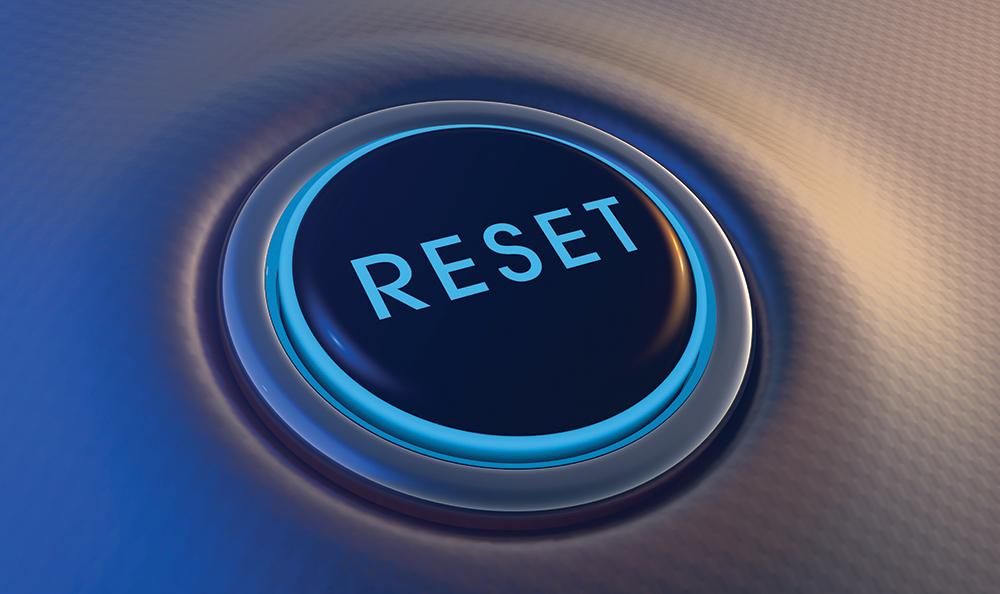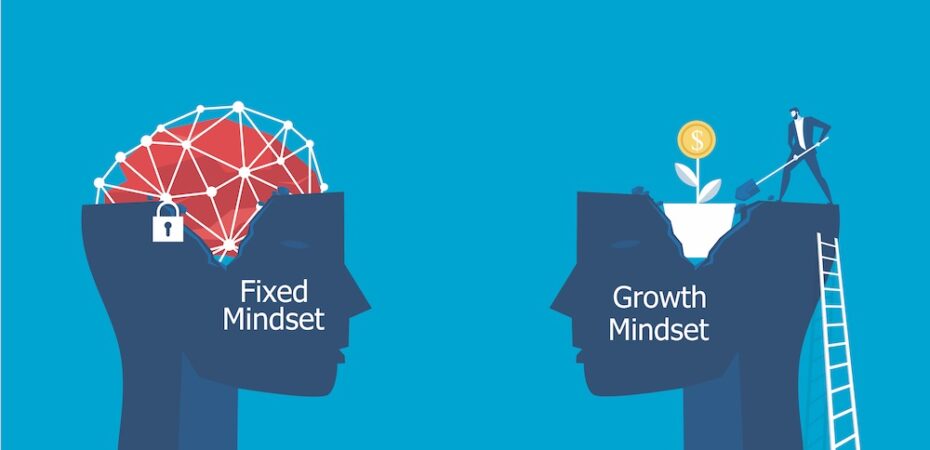Ways to Change Your Attitude
Mindset and behavioral changes can be a catalyst for improved physical, emotional and spiritual health
Dr. James Coupe Comments Off on Ways to Change Your Attitude
Over the past decade many articles, websites, blogs and other media have outlined how much stress and pressure falls on our priests. Burnout, compassion fatigue, administrative expectations, loneliness and uncertainty are some of the factors often cited as leading our clergy to feel wounded, even jaded, at times. There is no need to repeat how these stressors compound over time as there is ample information available on that topic; however, the idea of embracing a new attitude is worth exploring. Changes to attitudes can be a catalyst for improved physical, emotional and spiritual health.
Attitude refers to how one carries himself and interacts with others. Adjustments to our underlying beliefs and everyday behaviors are the most direct way to influence our attitudes. For most of us, there is room for improvement in cultivating attitudes, assumptions and behaviors that align with a higher quality of life, and herein are some of the most powerful psychological concepts related to mindset and behavior change. Interested readers are encouraged to further engage in the source material.
Mindsets
Attitudes are influenced by the conscious thoughts and assumptions we have about the world. Mindset is the term for the underlying beliefs that shape our perceptions. In her work, Dr. Carol Dweck of Stanford University articulates the concept of fixed, versus growth, mindset. Over decades of research, these mindsets have been shown to impact how people lead their lives. The defining element of the two mindsets relates to one’s belief about his own abilities, as either static (fixed) or able to be developed (growth).
Individuals who believe their own abilities — for example, intelligence, personality, athleticism — are “carved in stone” possess a fixed mindset. Immovable notions such as one are either smart or unintelligent, a failure or a success, or flexible versus inflexible, leave minimal room for the cultivation of abilities. If one believes any person only has so much of a fixed capacity for intelligence, positive personality traits, etc., then it is incumbent upon the person with a fixed mindset to repeatedly verify he has an ample supply of these traits. Not surprisingly, people who hold these underlying beliefs spend time trying to prove themselves and are highly sensitive to being wrong or making mistakes. Situations are routinely evaluated as successes or failures predicated on the judgment of whether one has proven a sufficient amount of this ability.
One can easily see how a fixed mindset in priesthood can lead to discouragement and a negative outlook. For example, a priest may feel bad about himself if he misspeaks during the homily since that unwanted outcome would prove he does not have “enough” abilities to be a good homilist. Another fixed-mindset priest may personalize reduced Mass attendance he has observed since the onset of the pandemic. He might perceive empty pews as proof that he does not have enough evangelization abilities.
Dweck outlines that a growth mindset is based on the belief that basic qualities can be cultivated through effort, strategies and help from others. Although people differ in their initial talents, interests and temperament, these can all be developed through learning opportunities. Growth mindset calls for one to see himself as capable of improvement and a work in progress, a psychological corollary to the ongoing formation of which priests are called. Growth-mindset individuals embrace challenges, value effort and are resilient in the face of setbacks. In fact, the interpretation of a setback as temporary and an opportunity to learn versus perceiving the same event as a failure helps explain the difference between these two mindsets.
A priest with a growth mindset may see those same empty pews as opportunities for outreach in his ministry. He can challenge himself to be creative in his evangelization versus seeing the partially filled church as proof that he is not “good enough” as a pastor. Another growth-mindset-oriented priest may challenge himself to improve his physical health after discovering he has hypertension. Rather than wallowing in his poor health, he could consider the diagnosis as proof that he needs to adjust lifestyle habits moving forward.
Moving toward a growth mindset is challenging, as fixed-mindset beliefs do not just disappear from learning the concepts. However, there are suggestions that simply raising one’s awareness of the differences between the mindsets can lead to appreciable changes. One must accept the reality that change of any type is challenging, and that it will not be an easy path to adjust a mindset one has had for decades. At the same time, an acknowledgment that change is possible is actually the first step in a growth mindset.
Changes
Understanding how mindsets influence attitudes and the benefits of a growth mindset allow people to more eagerly embrace challenges. As one might expect, this will invariably lead to changes in our daily behavior, but the following cannot be overstated: change is hard. Viewing setbacks as learning opportunities when trying to make different choices is essential. Consequently, we may realize that in the change process, we need to adjust our goals and strategies. As such, having a number of strategies at our disposal and using the ones that work for us makes sense. Dr. Katy Milkman, from the University of Pennsylvania, has authored “How to Change” (Penguin Random House, $28), which outlines a number of empirically proven tips for people to adjust their habits.
The timing of when one initiates a change can be an underappreciated factor when considering making a new goal. Milkman outlines that people have increased motivation for change when they perceive a “fresh start.” She maintains that fresh starts give one an impression of a clean slate that both allows one to put failures in the past and heighten optimism about the future. Fresh starts can be obvious calendar dates connected to new beginnings: January 1, Ash Wednesday, birthdays, etc. This may partially explain why, for many of us, it is easier to adhere to Lenten sacrifices than trying to make a similar sacrifice at other times of the year, since we observe Ash Wednesday as the arrival of Lent (a fresh start for our spiritual lives).

An obstacle to making certain changes has to do with our tendency to favor instantly gratifying temptations over larger long-term rewards — for example, watching television is more fun than exercising at that moment, ice cream tastes better than broccoli, etc. Milkman identifies this dynamic, which she refers to as “present bias,” as leading her to realize it was important to make actions that facilitate long-term goals more gratifying in the moment. For example, if your goal is to improve physical fitness, then finding ways to make exercise more enjoyable is key. One clever strategy is termed “temptation bundling,” which lets one engage in a guilty pleasure only when engaged in that valuable activity (that you typically deem less enjoyable in the moment). For example, let’s say you really enjoy a certain podcast, but only permit yourself to listen to this podcast when you are at the gym. By doing so, you are more likely to go to the gym since you are getting an immediate reward (the podcast) as an additional motivator to engage in the desired behavior (exercise).
A long-observed social psychological phenomenon is that people tend not to opt out of obligations, which partially explains why so many Americans have subscriptions to streaming services, gyms and journals they no longer use. People can leverage this tendency in the service of their long-term goals. For example, if your goal is to eat healthier foods, make sure to stock your kitchen with only those options. It will be much more of a challenge to go out and purchase an unhealthy snack when you have a craving instead of just opening the kitchen cabinet.
The final tip relates to habit development. As you may recall from introductory psychology, the more a person does something that gets rewarded, the more likely a person is to engage in that behavior again. By repeating an activity in familiar circumstances and experiencing a rewarding payoff — relief, accomplishment, etc. — the more habitual and automatic one’s responses become in those situations. Tracking behavior facilitates habit building, as this keeps the new habit on the front of your mind and allows you to celebrate positives and hold yourself accountable when you have not met the goal. When tracking, it is wise to aim for “streaks,” which you may have noticed are embedded in new technology tracking — smartwatches — as doing a behavior consecutively aids in habit formation.
Making Adjustments
Many people find they are simply too tired, or lack the confidence to initiate significant lifestyle changes. It is true that making any lifestyle change requires effort and concentration, but that should not serve as an impediment to making adjustments to improve our emotional, spiritual, and physical health. Individuals that rely on motivation as the overriding factor often fail to make their desired changes. However, those of us who initiate attitude changes based on challenging underlying beliefs and use of behavioral psychology tips to scaffold these changes are much more likely to move closer to long-term goals. Having witnessed the effectiveness of these techniques with many priests over the years provides a sense of optimism: Our abilities and life circumstances are not fixed, but can be improved when our approach changes.
DR. JAMES COUPE serves as clinical director at the Saint John Vianney Center, where he oversees the evaluation and treatment programs. As a clinical psychologist, Dr. Coupe sees individuals in psychotherapy and conducts psychological evaluations as a member of the Saint John Vianney Center interdisciplinary team.
…………………………………………………………………………………………………………………………………………
RESOURCES
• Carol Dweck, “Mindset: The Psychology of Success: How We Can Learn to Fulfil Our Potential,” Random House, $17
• Katy Milkman, “How to Change,” Penguin Random House LLC, $28.
• Learn more about the Saint John Vianney Center programs that promote wellness in mind, body and spirit at sjvcenter.org.
………………………………………………………………………………………………………………………………………….





